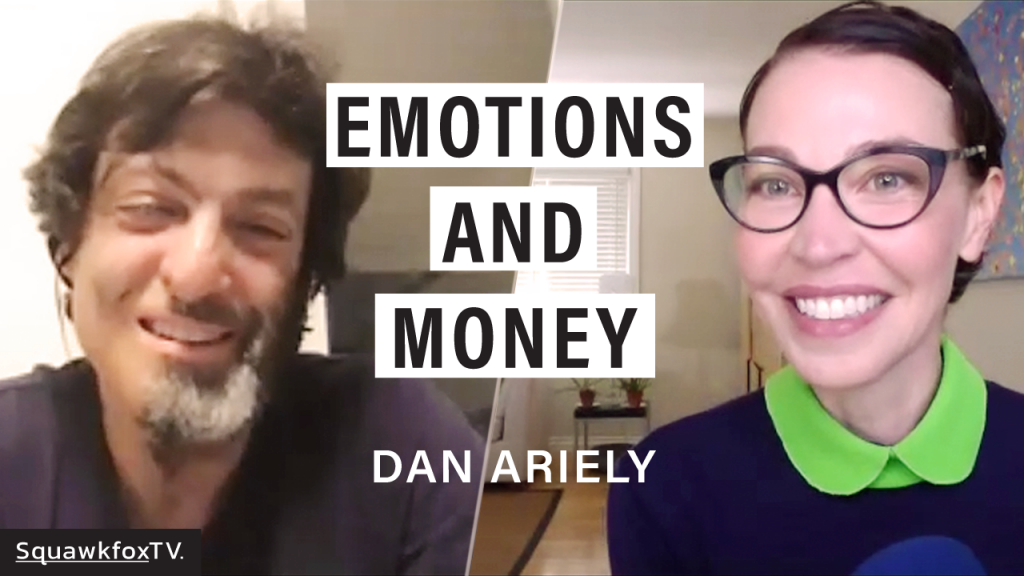📉 When the markets plunge
Today is about surviving market volatility, dealing with financial losses, and timing the market. OK, I don’t know how to ‘time the market’, but my interview with world-renowned behavioral economist Dan Ariely may shed some light.
Today’s newsletter is 676 words, 3½ minutes.
1. 🎢 Volatility is a rollercoaster
🚨 It’s stressful. No one likes uncertainty or watching their savings plunge, and too often we react to volatility in ways that are detrimental to our financial health.
- Yeah, markets move daily, but it feels twice as bad when the markets dip than when they shoot to the moon.
- A portfolio loss of 10% feels worse than an equivalent gain. With the markets swinging fiercely these days, volatility is a rollercoaster no one wants to board.
What’s going on? Say “hello” to a behavioral bias called Loss Aversion. Loss Aversion can lead to liquidating your portfolio when the market is low, and FOMO-buying when high.
⚠️ Why it matters. Strong emotional reactions can cloud our judgment during times of volatility. Inflation, shrinkflation, unemployment, and a general rise in the cost of living don’t help either.
- Anxiety can lead to destructive financial decisions, which makes our financial situation worse. We then circle back to feeling more stress. Rinse and repeat.
Bottom line: I can’t stop inflation or Loss Aversion, and I don’t know how to time the market or buy the dip. I’m not clairvoyant. (I once said this on live TV and they never invited me back). But I can share incredible advice from Dan Ariely, the Chief Behavioral Economist at Qapital.
2. ✨ The most important asset
Dan Ariely isn’t clairvoyant either, but he has the evidence-based steps for coping when the market goes sideways. I interviewed him for the Cash and Kerry Podcast.
💰 Who are the best investors?
“There was a study by Fidelity a few years ago, and they found that the people who did the best long-term investing are people who died. Because they did not do anything in their portfolio. The reality is if you’re trying to time the market, you can’t be smarter than everybody else – it just doesn’t work.”
⚡️ How do you deal with market volatility?
“I will not watch because watching is just painful. Why do I want this pain, right? I’m not going to make any decision. We should do nothing, and we shouldn’t watch.”
✨ What’s the most important asset class to invest in today?
“I would say human capital. The asset that yields revenue for any of us, for normal people – it’s us. We’re going to get more value out of our own skill, intelligence, and knowledge than dividends from the stock market. It’s time to go back and invest in our ability to be productive in the workplace rather than speculate about timing the market.”
⚙️ Who should tinker with their portfolios?
The Average Joes: “There are people like me, who basically say, ‘I’m just an average Joe.’ I don’t know anything more than other people. The people who recognize they don’t have any unique value or insight into the market should do nothing.”
The Dangerous People: “Then there’s a second category – the people who think they know, but they don’t. They’re the dangerous people because they try to time the market, do day trading, and all kinds of things. These people really belong in the don’t-do-anything category. They just don’t see it.”
🎩 The Oracles: “There are people who are experts, George Soros kind of people who know a lot, and they should go ahead and time the market. Do what they want.”
3. 🔥 Behave yourself!
Many of our financial successes and failures come down to habits and behaviors. In my full interview with Ariely, he shares his optimism and wit, and explains how we can override our emotions when it comes to money. It’s well worth a watch!
- The Cash and Kerry Podcast with Dan Ariely: How to break bad financial habits with Fintech
Love love love,
Kerry


